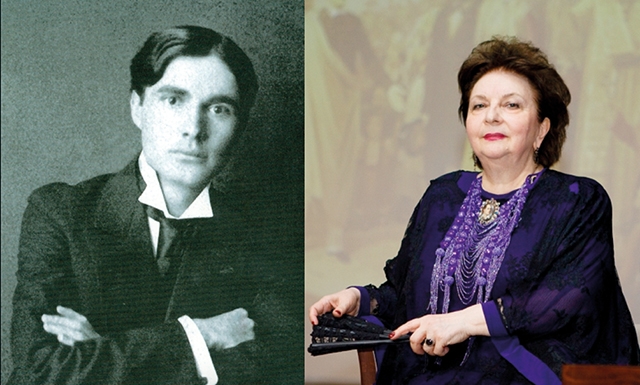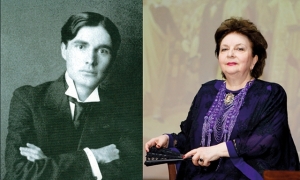Once Again on Galaktion & Innes
OP-Ed
Martina Nicolls, who was working in Georgia in 2010 for an American humanitarian company, wrote on 17 September: “My Dear Georgia, where everyone is a poet, a lover, or a lover of poetry. I knew I was in love with Galaktion Tabidze when, on a gusty escarpment at the National Botanical Garden of Georgia, I said aloud to no-one there: ‘whirls the wind, whirls the wind, whirls the wind, and the leaves whirl…’ On my tongue were not the words of Whitman, not Wordsworth, and not even Keats, but an unknown poet to a British girl raised in Australia. I found an English version of Galaktioni’s ‘Whirls the Wind,’ and it reminded me of James Joyce. But it was not until I discovered Innes Merabishvili’s beautiful translations of Galaktioni’s poems that I felt I could truly understand this kindred spirit, and more importantly, that he understood me. I am an author; I’m a lover of words, and Galaktioni, to me, is the most profound of all Georgian poets. In a way, it is not surprising that I turned to Galaktioni at a time of global darkness and uncertainty in March 2020: the coronavirus pandemic. His prophetic words were also words of comfort and hope, and the most precise expression of my own feelings, alone, in lockdown:
The world is worn out like a coin,
Now life is empty and quite dark,
Don’t be surprised if at this point,
I’m grateful for a little luck.
I thank Georgia for Galaktioni and Innes Merabishvili for bringing him, so eloquently, to me.”
Quotes like this are not very commonplace in our media, and if they ever materialize, they need to be carefully preserved in our literary annals. There is one regrettable thing that we Georgians have to recognize and swallow with dignified patience: the outstanding Georgian poetic philosophy and the unique power of Georgian verse remain unknown to the world. The Georgian poetic elevation is probably impossible to compare with the lyrical muscle of any other nation. I have the privilege to be an educated enough arbiter of literature in general, because I happen to be naturally trilingual, and so I can make a fair comparative judgement of a translated written word. This said, the name of the genius, the poet Galaktion Tabidze, would spring forth to any Georgian mind whose unfathomable poetic talent is shining from above over Humankind.
Galaktion, the pride and conscience of this nation, would have remained isolated from the rest of the world if Academician Innes Merabishvili had not successfully ventured to use her dazzling talent of poet and ttranslator to make this brilliant Georgian known to civilization. Innes Merabishvili, by nature, hates excessive kudos from anybody, but hopefully she can take easy the abundance of truth about her relationship with Galaktion’s poesy, made publicly known.
One cannot do anything more valuable to the Georgian people than putting the Georgian national talent into the ears and before the eyes of the world. This is exactly what she did with her translation of Galaktion’s poetry into English and having given it to her grateful readers in several wonderful editions.
Martina Nicolls is one of those appreciative readers whose sharp mind and keen eye have allowed her to not only notice a great piece of poetic translation from one language into another, but to feel it with all her responsive essence and fall in love with Galaktion. And this could have happened only thanks to Innes Merabishvili and her dedicated readiness to serve her native culture as well as world society, truly having rendered unto Caesar the things that are Caesar's, and to God the things that are God's.
As a matter of fact, it is not only Galaktion Tabidze who needs to be noticed and approved of, but all Georgia; to reinforce its deserved niche in the family of nations. The creative activity of Innes Merabishvili absolutely matches this demand of time; her amazing talent and knowledge of English and Georgian languages being definitely commensurate with what Galaktion wanted to say in verse.
By Nugzar B. Ruhadze











